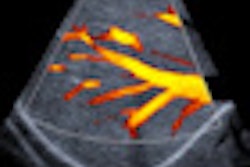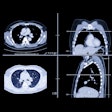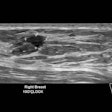
NEW YORK (Reuters Health) - Your doctor may be wrong about your risk of suffering a heart attack, at least if you're Spanish, suggests a new study.
The findings, which line up with earlier evidence from Europe, are concerning because they mean doctors could be basing their treatment decisions on inaccurate numbers -- skewing the balance between harms and benefits.
"Overprediction would inevitably lead to a disproportionate number of patients being targeted for treatment, affecting health care resources and potentially exposing patients to unnecessary treatment," Dr. Francisco Buitrago and colleagues write in the Annals of Family Medicine.
"Similarly, any systematic underprediction of risk could potentially deny patients much needed treatment," adds the team, from Centro de Salud Universitario La Paz in Badajoz.
But one U.S. researcher cautioned that the new study is small and doesn't apply to Americans.
To estimate a patient's risk of heart disease, doctors around the world often use equations based on data from a government-led study begun in 1948 in the town of Framingham, Massachusetts.
That study identified a few major factors that can help predict a healthy person's chance of suffering a heart attack, including age, gender, cholesterol, blood pressure, and whether or not that person smokes.
Plug this information into the Framingham equation -- you can do it yourself here: http://hp2010.nhlbihin.net/atpiii/calculator.asp -- and you get a neat risk score.
But in Spain and other places outside the U.S., where this equation is also used, that risk doesn't seem to match up to reality.
For their study, Buitrago and colleagues looked back at the medical records for 447 patients followed over 10 years. The patients were between 35 and 74 years old and had no signs of heart disease or diabetes at the outset of the study.
According to the Framingham equation, 12% of the patients should have suffered a heart attack or developed signs of one over the 10-year period.
But in reality, only 7% did.
Even a newer version of the Framingham equation developed specifically for use in Spain was off, predicting an overall risk of 4%.
Those discrepancies have direct implications for who is treated with cholesterol-lowering statins and high blood pressure medications.
So what should healthy people make of this?
The Spanish researchers stress that "no one is sick" just because they have a high risk score. Many people labeled as "high-risk" in the study didn't suffer a heart attack after all, while some people without that label did.
Ralph D'Agostino, a Framingham investigator and a professor of mathematics at Boston University, criticized the study's methods.
He said the Spanish version of the Framingham equation, which he helped create, has been vetted in thousands of patients, while the new study was much more limited.
"They only had 30 people that developed events," he told Reuters Health. "It's a very small sample so the whole thing is basically noise."
He added that the findings don't apply to the U.S.
"The Framingham functions in the States have a lot of validity," D'Agostino said.
By Frederik Joelving
Source: http://bit.ly/cZf2s9
Annals of Family Medicine, September 12, 2011.
Last Updated: 2011-09-12 17:00:31 -0400 (Reuters Health)
Copyright © 2011 Reuters Limited. All rights reserved. Republication or redistribution of Reuters content, including by framing or similar means, is expressly prohibited without the prior written consent of Reuters. Reuters shall not be liable for any errors or delays in the content, or for any actions taken in reliance thereon. Reuters and the Reuters sphere logo are registered trademarks and trademarks of the Reuters group of companies around the world.



















